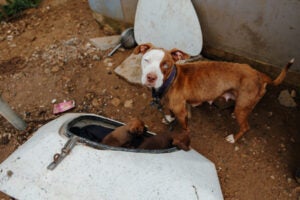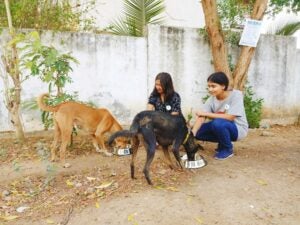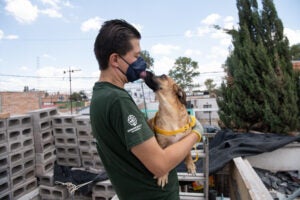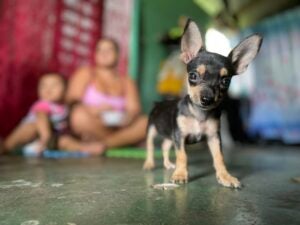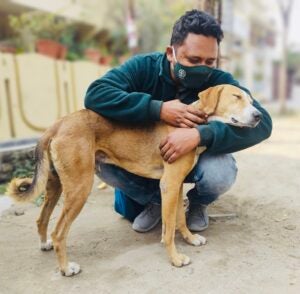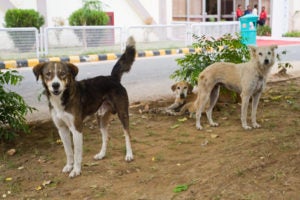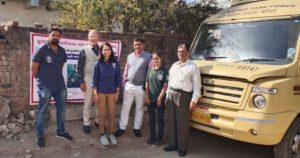
BUCHAREST, Romania—Together with the animal protection organization Humane Society International/Europe, the Ilfov County Council, kicked off a community-wide program to deliver free veterinary care to street dogs and cats. Teams of veterinarians will provide services such as spay and neuter, vaccination, microchipping, deworming treatments and first aid, to better protect people and animals. The initiative, running through 2025, is part of a broader effort to support local authorities in adopting humane population control strategies while promoting public education on animal welfare and responsible pet ownership. Roundtable discussions will also be held to support local and county authorities in creating strategic humane management plans for the region’s street animals.
Hundreds of street dogs and cats are likely to benefit from this initiative, contributing to a safer and healthier environment for both people and animals. The program will focus on high-priority areas, ranging from public institutions, former military bases, company headquarters, courtyards and disadvantaged and neglected areas within Ilfov County.
Hubert Thuma, president of Ilfov County Council, said: “I am not ashamed to say to Humane Society International/Europe: teach us, help us, work with us! At the same time, it makes me sad because I realize that after years and years, we as a country have not been able to care for street dogs and cats at the level they deserve. In 2013, we voted against the law on mass killing of animals. I explained then that mass sterilization, information and education were the solutions. Later, in 2020, when I became county council chairman, lo and behold, I was able to demonstrate that humane and effective methods exist. I thank HSI/Europe for the partnership for good that we have started together!”
HSI/Europe’s Compassion for Companions program has been supporting projects dedicated to helping pets in disadvantaged communities in Romania since 2022. Through local partner organizations, HSI facilitates access to veterinary care and assistance in communities where these services are non-existent or too expensive. More than 2,000 dogs and cats from shelters, from the streets or whose owners cannot afford the costs of veterinary care have been helped so far in several areas of Romania.
Andreea Rosetti, Romania country director at HSI/Europe says: ” We have launched the Compassion for Companions program in Romania because the animals here need as much support as possible. I have personally witnessed the desperate need for street animals to receive help and the veterinary medical care makes the difference between life and death. I also understand the struggle of those who care for the animals in a community who cannot take the burden of so many new puppies on the street. And this is where we help. We have started this collaboration with Ilfov County Council because Ilfov has already shown that they have an effective vision that puts the lives of all beings first.”
Dr. Katherine Polak, vice president of companion animal welfare and engagement at Humane Society International adds: “Humane Society International/Europe is ready to assist authorities in the humane management of stray dog and cat populations, drawing on data, rigorous research, and expertise in the field. HSI has a specialized Monitoring, Evaluation, Impact, and Assessment team that works globally to assist governments in identifying the best ways to manage free-roaming animal populations. We will help Ilfov authorities make informed and humane decisions for the benefit of the animals, as well as the community.”
HSI has successfully led animal population management programs all over the world to address companion animal welfare issues at a local or national level. Over the years, HSI’s MEIA team has provided support to local animal welfare organizations and governments with high-tech accuracy by developing mobile applications tailored to gather and track data for spay/neuter, catch-neuter-vaccinate-return of dogs and mass vaccination programs.
Download pictures of Romanian street dogs and cats receiving veterinary care through the Compassion for Companion program.
ENDS
Media contacts:
- Andreea Roseti; aroseti@hsi.org
- Hilde Tudora, Director of Animal Protection Ilfov; 0768.78.41.2

